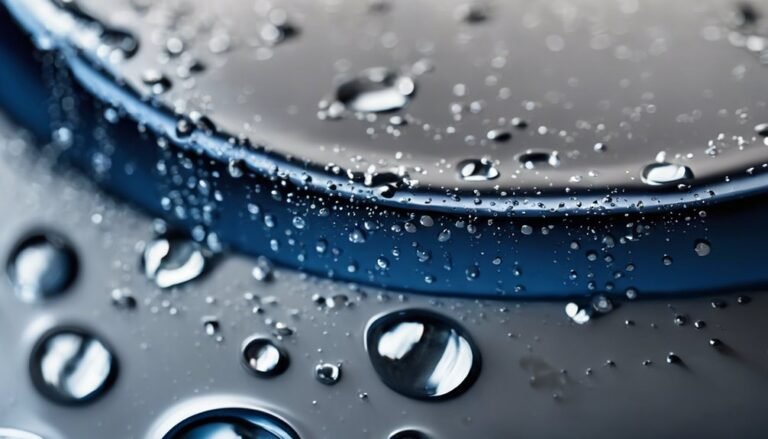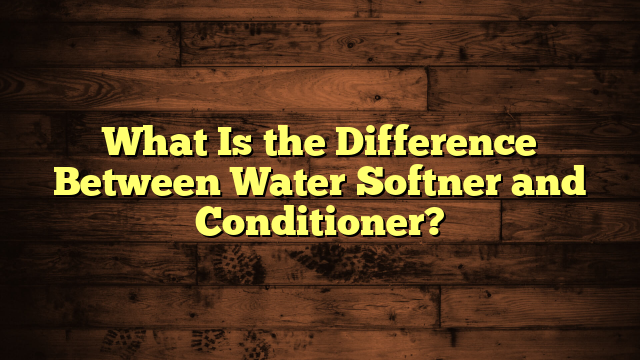Who Takes a Used Water Softner Away?
You can rely on local disposal services, recycling centers, and professional junk removal companies to take away your used water softener. These services guarantee proper disposal, often offering same-day pickups for convenience. Municipal waste management programs might also collect appliances, while local charities may accept donations if they're in good condition. If you're looking for alternatives, consider selling it online through platforms like Craigslist or Facebook Marketplace. Remember, checking accepted materials and guidelines can streamline the process. There are plenty of options available, and exploring them can help you find the best solution for your needs.
Key Takeaways
- Local disposal services provide waste management for used water softeners, ensuring safe and eco-friendly disposal practices.
- Professional junk removal companies offer hassle-free pickups for unwanted appliances, including water softeners, with quick scheduling options.
- Recycling centers evaluate and disassemble used water softeners to recycle materials like plastic and metal responsibly.
- Charities such as Habitat for Humanity may accept used water softeners as donations, supporting community needs while reducing waste.
- Online marketplaces like Craigslist and Facebook Marketplace allow individuals to sell used water softeners, connecting sellers with potential buyers.
Local Disposal Services
When you're ready to part ways with your used water softener, local disposal services can be a great option. These services often specialize in managing household waste, making them well-equipped to handle items like your water softener.
They understand the significance of proper disposal and can guarantee that your unit is disposed of safely and responsibly.
To get started, you'll want to search for local services in your area. Many waste management companies offer pickup options for large appliances, which can save you the hassle of transporting the softener yourself.
Some may even provide same-day services, making it a convenient choice when you're short on time.
When contacting these local services, ask about their disposal options. Some may charge a fee, while others could include the service as part of a larger waste removal package.
It's crucial to clarify any costs upfront to avoid surprises.
Recycling Centers
When you're ready to recycle your used water softener, understanding the recycling process is essential.
Each center has specific guidelines on what materials they accept, so you'll want to check those before heading out.
Knowing your local recycling center locations can make the process even easier for you.
Recycling Process Overview
Recycling centers play an essential role in managing used water softeners, ensuring they're processed responsibly. When you bring your water softener to a recycling center, it undergoes a systematic process designed to maximize recycling benefits.
First, the center evaluates the unit to determine its components. They carefully disassemble the softener, separating materials like plastic, metal, and resin beads.
Next, the recyclable materials are cleaned and sorted. The plastic parts might be melted down and reformed into new products, while metals are sent to smelting facilities to create new metal items. The resin beads, which help soften water, often require specialized processing, but they can also be recycled into new products.
This entire process contributes to water conservation. By recycling these components, you're not only reducing waste in landfills but also conserving the resources needed to produce new materials.
Plus, you help create a sustainable cycle that benefits the environment. So, when you choose to recycle your used water softener, you're taking an active role in promoting recycling benefits and supporting water conservation efforts in your community.
Accepted Materials Guidelines
At recycling centers, knowing what materials are accepted can streamline the process of disposing of your used water softener. Each center has specific disposal guidelines regarding water softener materials, so it's crucial to familiarize yourself with these before you go.
Here's a quick overview of common accepted materials:
| Material Type | Accepted | Not Accepted |
|---|---|---|
| Resin Tanks | Yes | No |
| Salt Brine | Yes | No |
| Plastic Components | Yes | No |
| Metal Parts | Yes | No |
Before you head to the recycling center, check their specific guidelines. While most water softener materials are accepted, certain centers might have restrictions on specific components or require advanced notice for larger items. Ensuring compliance with their disposal guidelines can save you time and prevent any surprises at the center.
Local Center Locations
Finding a local recycling center that accepts used water softeners is straightforward once you know where to look.
Start by checking your city or county's waste management website. They often provide a list of local centers that handle softener collection. You can also search for recycling centers specifically dedicated to local water treatment equipment.
Local hardware stores may have information on nearby facilities, too. If you're part of community forums or social media groups, ask your neighbors for recommendations. They might know of reliable centers that accept water softeners and other household items.
Another option is to contact the manufacturer of your water softener. They sometimes partner with recycling centers and can direct you to the closest location.
Finally, don't forget about local waste disposal events; some offer specific days for softener collection.
Municipal Waste Management
While many people think of municipal waste management as just trash collection, it plays a crucial role in handling various waste types, including discarded appliances like used water softeners. Proper disposal is essential, as these items can contain materials that may harm the environment if not managed correctly. Municipalities often implement waste reduction strategies to minimize the impact of such waste.
Here's a quick look at common disposal methods:
| Disposal Method | Description |
|---|---|
| Curbside Collection | Regular pickup of bulky items. |
| Recycling Programs | Diverts materials from landfills. |
| Drop-off Centers | Designated locations for appliance drop-off. |
| Hazardous Waste Events | Special collection days for dangerous items. |
| Donation Initiatives | Encouraging reuse through charities. |
Charity Organizations
If you're looking to get rid of your used water softener, consider donating it to a local charity organization.
Not only can this provide them with valuable resources, but it also helps reduce environmental waste.
Plus, it's a great way to give back to your community while making an eco-friendly choice.
Donation Opportunities Available
When you're ready to part with your used water softener, consider donating it to a local charity organization. Many charitable organizations are enthusiastic to accept appliances that can help families in need.
Before you make your donation, check their donation guidelines to verify your water softener meets their requirements. Some organizations may have restrictions based on the condition or age of the appliance, so it's best to clarify beforehand.
Organizations like Habitat for Humanity or local shelters often accept household items, including water softeners. Donating your appliance not only helps those in need but also promotes a sense of community.
You might even find that your used water softener can greatly improve someone's quality of life.
If you're unsure where to donate, look for community bulletin boards or online groups dedicated to local charities. They often provide information on donation drives and accepted items.
By donating your water softener, you're making a positive impact while freeing up space in your home. It's a win-win situation!
Environmental Impact Considerations
Considering the environmental impact of your used water softener is essential, especially when donating it to charity organizations. By choosing to donate, you're not just clearing out space; you're also contributing to sustainability practices that help reduce waste. Many charities have programs that focus on reusing or recycling materials, ensuring your water softener doesn't end up in a landfill.
Before donating, check if the organization supports eco-friendly alternatives. Some charities prioritize items that can be refurbished or repurposed, which aligns with green practices. This way, your donation can be transformed into something beneficial for the community, rather than contributing to environmental degradation.
It's also wise to inquire about the charity's methods for handling donated appliances. Organizations that emphasize responsible disposal and recycling are more likely to align with your values. By donating your used water softener to a charity that follows these sustainability practices, you can feel good knowing you're making a positive impact.
Ultimately, your decision to donate can play a significant role in promoting eco-friendly practices within your community, fostering a culture of sustainability for future generations.
Home Improvement Stores
Many homeowners turn to local home improvement stores for assistance with their used water softeners.
These stores often provide valuable resources and information to help you make informed decisions about your water softener disposal. You can explore various water softener brands and get home improvement tips on how to upgrade or maintain your system.
Here's what you can find at your local home improvement store:
- Drop-off Programs: Some stores offer drop-off programs for old appliances, including water softeners.
- Recycling Options: Many stores partner with recycling companies to help you responsibly dispose of your water softener.
- Purchase Incentives: When you buy a new water softener, some stores provide discounts or trade-in options for your old unit.
Professional Junk Removal
If local home improvement stores aren't the right fit for your needs, professional junk removal services can be an excellent solution for getting rid of your used water softener.
These services specialize in hauling away unwanted items, taking the hassle out of your hands. When you choose a junk removal service, you can expect a quick and convenient process. Just schedule a pickup, and a team will come to your location, handle all the heavy lifting, and guarantee your water softener is disposed of properly.
Moreover, many professional junk removal companies prioritize eco-friendly practices. They often recycle or donate items whenever possible, reducing waste and minimizing environmental impact.
Online Marketplaces
Selling your used water softener through online marketplaces can be a great way to recoup some of your investment while helping someone else in need.
With the rise of online selling, you've got multiple marketplace platforms at your fingertips, making it easier than ever to connect with potential buyers.
Start by taking clear, detailed photos of your water softener and writing an accurate description. Highlight its features, age, and any maintenance you've performed. Transparency will attract buyers and set their expectations.
Consider these tips for successful online selling:
- Choose the Right Platform: Use popular sites like Craigslist, Facebook Marketplace, or eBay to reach a broader audience.
- Set a Fair Price: Research similar listings to determine a competitive price that reflects the condition of your water softener.
- Be Responsive: Quick communication can make all the difference. Answer questions promptly to keep interested buyers engaged.
DIY Disposal Options
When it comes to disposing of a used water softener, DIY disposal options can be both eco-friendly and cost-effective. You have several pathways to evaluate that not only help you declutter but also benefit the environment.
Here's a helpful table outlining some DIY disposal methods:
| Method | Description |
|---|---|
| Recycling | Check local recycling centers for softener parts. |
| Repurposing | Transform parts into garden planters or decor. |
| Donation | Offer your unit to neighbors or local charities. |
| Hazardous Waste Facility | Contact local facilities for safe disposal. |
| Landfill | If no other options work, dispose of it in a landfill. |
Before you decide, make certain to research your local regulations, as some areas have specific rules regarding water softener disposal. By choosing a DIY disposal method, you save money and contribute to a greener planet. Remember, responsible disposal is essential, so you'll want to confirm you're following best practices. With these options in mind, you'll find a solution that fits your needs!
Frequently Asked Questions
Can I Sell My Used Water Softener Online?
Yes, you can sell your used water softener online. Explore various selling platforms like eBay or Facebook Marketplace. Use effective pricing strategies, considering the condition and market demand, to attract potential buyers quickly.
Are There Specific Regulations for Disposing of Water Softeners?
When it comes to disposing of water softeners, think of it like traversing a maze. You'll need to follow regulatory guidelines and explore proper disposal methods to guarantee you're doing it safely and responsibly.
How Do I Prepare My Water Softener for Removal?
To prepare your water softener for removal, start by disconnecting it from the plumbing. Follow essential water softener maintenance steps, like draining it completely. Remember these plumbing tips to avoid leaks and guarantee a smooth removal process.
What Happens to the Materials in a Disposed Water Softener?
When you dispose of a water softener, think of it like a forgotten treasure. Recycling materials can greatly lessen the environmental impact, transforming your old unit into new resources and supporting a greener, healthier planet.
Can I Donate a Non-Working Water Softener?
You can't typically donate a non-working water softener, but check local donation options or recycling centers. They might accept it for parts or proper disposal, ensuring it doesn't contribute to environmental waste.
Conclusion
When it comes to getting rid of that old water softener, you've got options, but not all are created equal. Imagine the relief of freeing up space in your home—only to discover a hidden value in that outdated unit. Will a local service take it away, or could you find someone willing to pay for it? As you consider your choices, remember: sometimes, what seems like waste can hold unexpected potential. Are you ready to uncover it?







